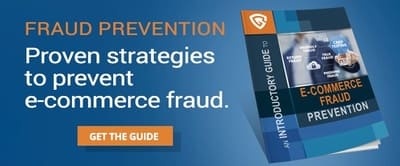Chargebacks When Children Make Unauthorized Purchases
Unauthorized use of a parent's credit card by a child is a concerning issue that has become increasingly prevalent in today's digital age. Such actions can lead to chargebacks, which are transactions that are disputed by the cardholder and ultimately result in the reversal of funds to the cardholder's account.
Chargebacks are a major concern for merchants as they can result in financial losses and administrative burdens. In cases involving a child's unauthorized card usage, merchants often find themselves in a challenging position, as they must balance serving their customers while also protecting their business interests.
Unauthorized Credit Card Use by Children
The unauthorized use of a parent's credit card by a child can take various forms. One common scenario is when a child accesses their parent's physical credit card and uses it to make purchases at physical stores or to make online transactions. This can happen when the parent's card is left unattended or when the child memorizes the card details.
Another prevalent situation involves children making unauthorized purchases within mobile apps or online platforms.
Many apps and games offer in-app purchases, and children may inadvertently or intentionally use their parent's stored payment information to make these purchases. This can result in significant charges to the parent's credit card, leading them to dispute the charges.
What the Law Has to Say
Generally, parents are legally responsible for their minor children's actions, including financial misconduct. However, the degree of liability can vary based on factors such as the child's age, the nature of the transaction, and local laws.
In some jurisdictions, there may be limitations on a parent's liability, especially if they can demonstrate that they took reasonable steps to prevent unauthorized usage.
It's essential for parents to be aware of their legal obligations and responsibilities regarding their children's use of their credit cards. This awareness can help parents take appropriate preventive measures and ensure that their children understand the legal and ethical implications of using someone else's payment methods without permission.
 Merchants should also be aware of any laws in their operating region that pertain to chargebacks caused by a child's unauthorized card usage.
Merchants should also be aware of any laws in their operating region that pertain to chargebacks caused by a child's unauthorized card usage.
Understanding the legal rights and responsibilities of all parties involved is crucial when navigating disputes and working towards a resolution.
Parents are responsible for educating their children about financial responsibility and the importance of not using someone else's payment methods without permission. Additionally, they must take steps to secure their credit card information to prevent unauthorized access, which is essential for preventing these situations from arising in the first place.
When they do occur, however, the best solution to these issues is for the parent to contact the merchant directly. Many merchants will choose to refund such purchases since a refund is always less costly than a chargeback.
The Merchant’s Perspective
From a merchant's perspective, dealing with chargebacks caused by a child's unauthorized use of a parent's credit card presents unique challenges.
When a cardholder files a chargeback, it’s often assumed that the individual will not be engaging in legitimate business with the merchant in the future. Merchants often block transactions from these customers to avoid future chargebacks.
However, when the root cause of the chargeback is unauthorized use of the card by a child, it’s far more likely that the customer may make further legitimate purchases. Merchants may wish to analyze a customer’s purchase history when a chargeback occurs and determine whether to focus on recovering the lost revenue or continuing that customer relationship.
Of course, the best way to deal with chargebacks is to prevent them from happening in the first place.
Merchants can take several preventive measures to reduce the occurrence of chargebacks in these situations. Two-factor authentication (2FA) can add an extra layer of security, making it more difficult for unauthorized users, including children, to complete transactions without the cardholder's knowledge. Simple fraud prevention tools like AVS and CVV matching can sometimes foil children in addition to fraudsters.
When using stored payment credentials, some merchants may find it useful to require some sort of confirmation each time a purchase is made. Of course, this causes some additional friction, so it’s best to use data science and A/B testing to determine the right solution for the individual business. For mobile payments, biometric authentication can provide a robust means of authentication with minimal friction.
Providing a receipt for each purchase via email or SMS may not prevent unauthorized transactions, but it can get the parent’s attention after the first purchase is made, preventing further unauthorized purchases that might otherwise lead to multiple charges being disputed.
Chargeback Representment
In general, the unauthorized use of a parent’s credit card by a child is not considered a legitimate reason for filing a chargeback, since it is not criminal fraud, and the customer received the purchased goods or services. Unfortunately, the final decision in such cases comes down to the issuing bank, and not all banks have clear policies addressing these situations.
To represent chargebacks effectively, merchants must be prepared to provide evidence that the transaction was authorized. This evidence may include records of communication with the cardholder, data from previous purchases, and documentation of any authentication methods used for the transaction.
The rebuttal letter should clearly and succinctly summarize the included evidence, address the specific reason code attached to the chargeback, and explain why it should be reversed. Keep in mind that the issuing bank’s staff will typically spend less than 5 minutes reviewing the dispute package.
Conclusion
In conclusion, chargebacks caused by a child's unauthorized use of a parent's credit card present multifaceted challenges for both merchants and families. These situations underscore the importance of responsible financial education, effective communication, and prudent safeguarding of sensitive financial information.
For merchants, chargebacks resulting from such scenarios can be financially burdensome and operationally challenging.
 Detecting unauthorized transactions, implementing preventive measures, and handling chargeback disputes require a delicate balance between protecting the business from future risk and avoiding undue disruption to future revenue.
Detecting unauthorized transactions, implementing preventive measures, and handling chargeback disputes require a delicate balance between protecting the business from future risk and avoiding undue disruption to future revenue.
Ultimately, addressing chargebacks caused by a child's unauthorized use of a parent's credit card necessitates cooperation between merchants, parents, and financial institutions.
By taking preventive measures, fostering responsible financial behavior in children, and navigating disputes with professionalism and empathy, it is possible to mitigate the impact of these situations and promote a more secure and ethical financial environment for all parties involved.
Thanks for following the Chargeback Gurus blog.



